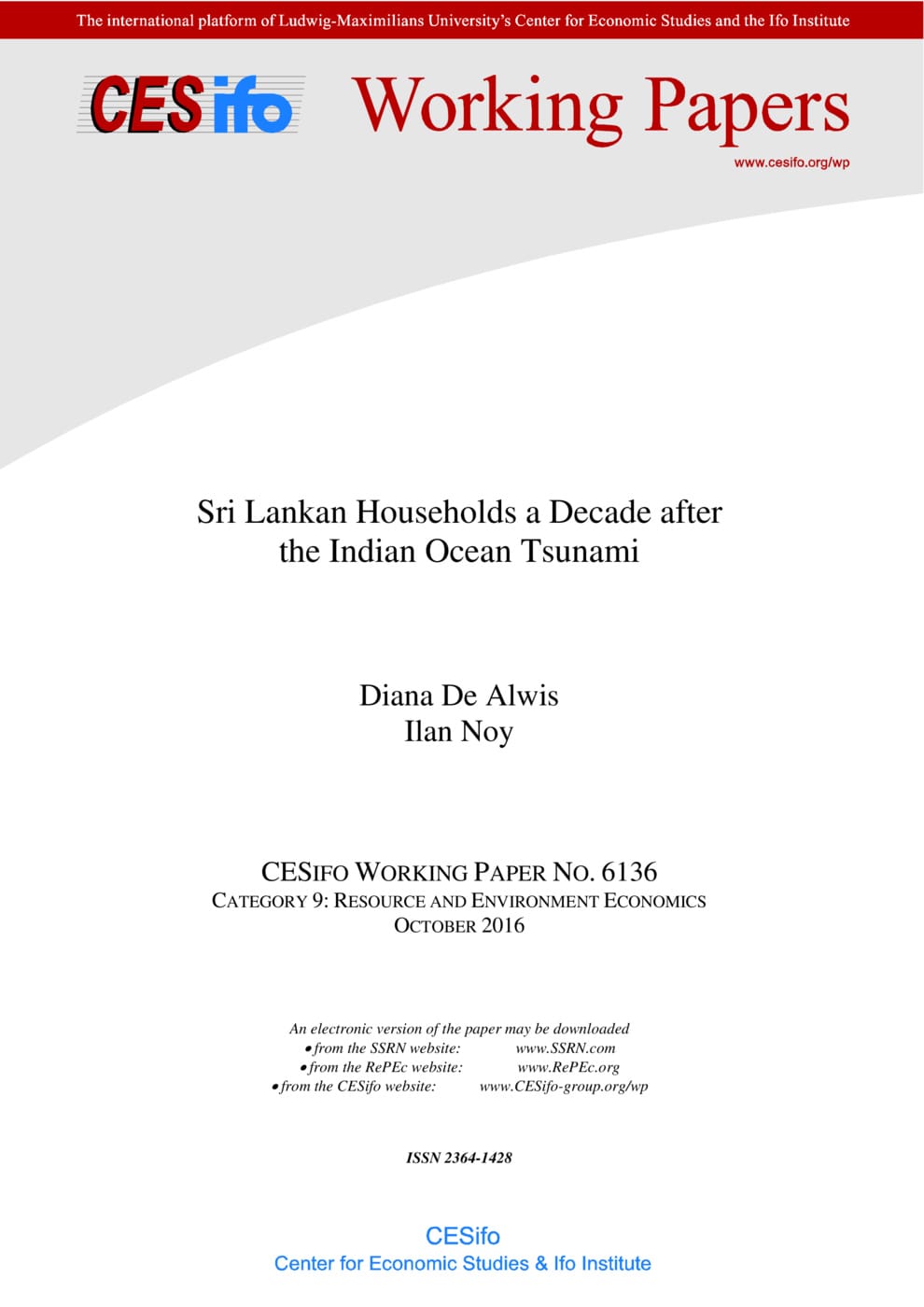Sri Lankan Households a Decade after the Indian Ocean Tsunami
CESifo, Munich, 2016
CESifo Working Paper No. 6136

We estimate the causal effect of the Indian Ocean tsunami in Sri Lanka on household income and consumption eight years after the event, using a quasi-experimental method. A strong association between area-wide tsunami disaster shock and increases in household income and consumption in the long-term emerged from our empirical investigation. Deviating from the common observation on short-term impacts, these results are suggestive of an optimistic potential for some long-lasting potentially successful recovery scenarios. Still, Sri Lanka received a very large amount of external transfers post-tsunami, much larger than is typical for disaster events and one which may not be replicable in other cases. Our findings suggest a more nuanced picture with respect to household consumption impacts. We observe a reduction of food consumption and only find an increase in non-food consumption. The increase in non-food consumption is much smaller than the observed increase in income. We also find that households in high-income regions experienced much better recovery from the disaster.
Resources and Environment
Energy and Climate Economics